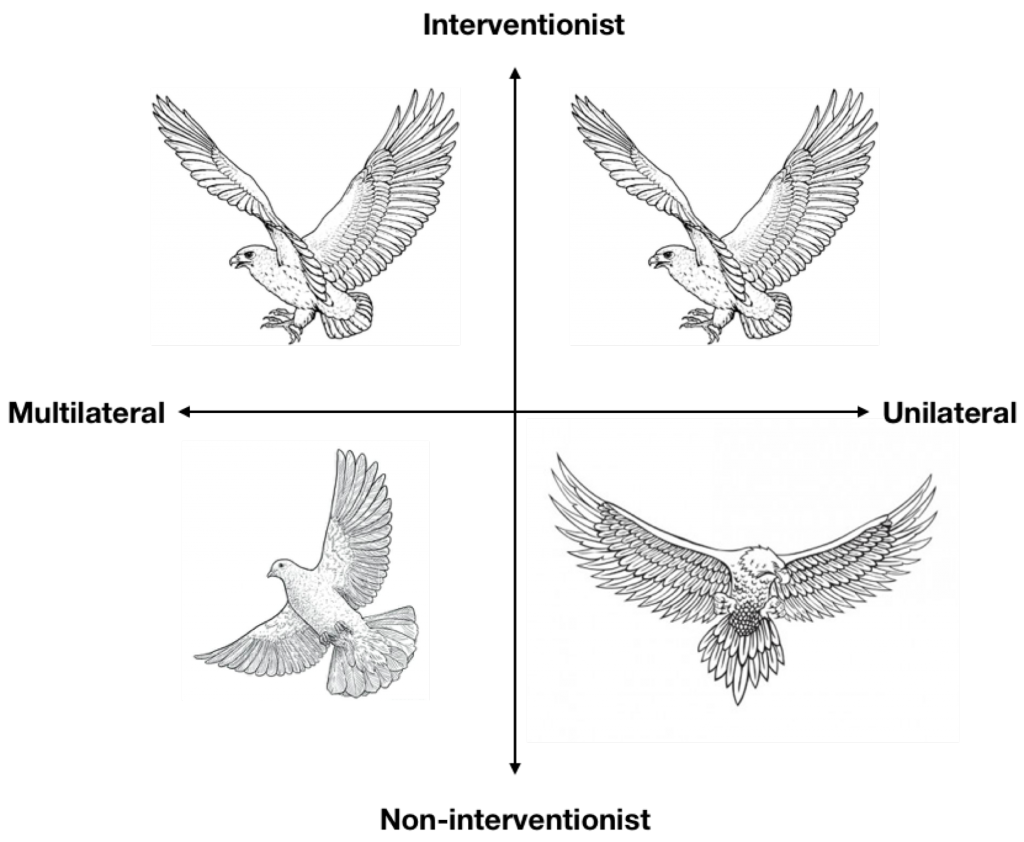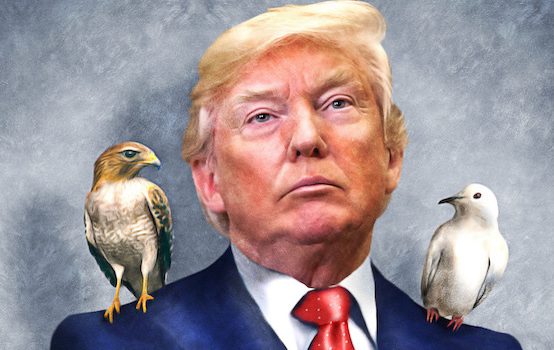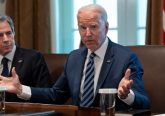In early September, President Donald Trump lost his third National Security Adviser, John Bolton. Since then it emerged that the two clashed over a number of issues, with the former advocating for US intervention in a number of countries and the latter favoring a less confrontational approach. Reportedly, Trump quipped that “if it was up to John, we’d be in four wars now.” In fact, the president has repeatedly stated his aversion to foreign (mis-)adventures. Trump’s “America First” approach to foreign policy has been at odds with Bolton’s “America Everywhere” approach from the outset. Why, then, did a president with such dovish tendencies chose a hawk’s hawk as National Security Adviser? What does the ouster of John Bolton tell us about US foreign policy under Trump? Which species of the avian kingdom best describes Trump’s foreign policy?
Foreign Policy Hawks and Doves
The distinction between hawks and doves has enjoyed enduring popularity (or derision) to describe distinct foreign policy orientations. As Michael Marks explains, going back at least to the Cuban Missile Crisis, a “hawk” is a person who advocates a hard-line or warlike policy and a “dove” refers to a person who advocates negotiations as a means of terminating or preventing a military conflict. The symbolism is obvious: Hawks are predatory birds, while doves are peaceful (indeed they are a symbol of peace). Hawks are said to be gung-ho, pro-active and militaristic interventionist. Doves are deliberative, passive and pacifist non-interventionist.
Thus, it is easy to understand why John Bolton is commonly described as a hawk. He has boasted about pursuing regime change in Iran, contemplated US intervention in Venezuela, and has been skeptical of rapprochement with North Korea. On the other hand, Donald Trump for all his bluster and bravado, for instance threatening to unleash “fire and fury” on North Korea, has been quite restrained thus far. He has shown reluctance to make use of US military might and eagerness to engage in diplomatic talks with America’s enemies. He has met on several occasions with North Korea’s Kim Jong-Un, almost invited the Taliban for negotiations to Camp David, and is reportedly willing to meet with Iranian representatives. Unsurprisingly, the dovish Donald Trump and the hawkish John Bolton did not see eye to eye on many key foreign policy issues. None of this should have come as a surprise to either Bolton or Trump. So why did the dovish Trump nominate the hawkish Bolton to become his National Security Advisor?
Birds of a Different Feather Flocking Together?
One purported reason for Bolton’s hiring is that Donald Trump watched him on Fox News, where he was a pundit before joining the administration. Trump enjoyed Bolton’s performances, specifically his uncompromising stance on the Iran nuclear deal, so much that he nominated him for the post of National Security Adviser. While not far-fetched for a President that has been influenced by Fox News personalities in his tweeting habits, policy positions and personnel decisions, the question why Trump became infatuated with the Bolton he saw on TV and what this tells us about Trump’s foreign policy has not been satisfactorily answered. What might have endeared Bolton to Trump, aside from his unapologetic tough-guy shtick, is that he is a hard-line unilateralist. Famously, the former US ambassador to the United Nations, once noted that if the 38-floor UN building in New York “lost 10 stories, it wouldn’t make a bit of difference.” Bolton’s impatience for multilateral institutions, regimes or treaties jives well with Trump’s “war on the world order.” Trump has been highly critical of the United Nations, NATO, the Paris Climate Agreement, multilateral trade deals and other international entanglements. Trump has repeatedly shown his disdain for multilateral approaches, opting instead for unilateral or ad hoc action.
Whereas John Bolton is a prototypical conservative foreign policy hawk –interventionist and unilateralist, [1] Trump’s foreign policy is both non-interventionist and unilateralist. While this makes Trump a dove on the military intervention spectrum, he is also markedly different from most other non-interventionist doves who acknowledge that in an anarchic world multilateral institutions and international governance are indispensable for resolving international crises and avoiding getting dragged into foreign wars. Liberal doves are usually non-interventionists and multilateralists. The latter is a trait they share with liberal foreign policy hawks, who while ready to engage in overseas military adventures are less willing to do so alone. Trump’s isolationist unilateralism has long been a minority orientation in foreign policy circles, associated with libertarians such as Senator Rand Paul, whom Senator John McCain once called a “wacko bird.”

Combining the two dimensions, the willingness to engage in intervention and alliances, generates a mapping of the different species of ideal-typical foreign policy birds. Both liberal and conservative hawks are interventionist, differing more in the how than the what or why. Most doves are non-interventionist, preferring to work with international partners and through international institutions to solve international crises. Trump’s foreign policy with its isolationist bend and “America First” orientation differs from both hawks and most doves. It represents a new breed: unapologetically nationalist, zero-sum and with strong isolationist tendencies. In reference to America’s national symbol, this rare bird might be called the eagle. Fiercely protective of the boundaries of its territory, powerful and proud, the ‘king of the skies’ is unwilling to get involved in the affairs of others, similar to the great eagles in Tolkien’s legendarium.[2]
Eagle or Headless Chicken?
Of course, there is a far less flattering bird-based comparison that could be made in reference to Trump’s foreign policy. Rather than a majestic eagle soaring the skies, US foreign policy under Trump might be said to resemble a headless chicken – all over the place without any real plan, coherence or consistency. While in principle Trump’s foreign policy can be characterized as non-interventionist and unilateralist, in practice it is hard to predict how his administration will react to any given situation on any day of the week. Rather than informed by an eagle-eyed view of its priorities and preferences, Trump’s foreign policy has been prone to flights of fancy and bird-brained initiatives by a commander in chief seemingly winging it. Considering that Trump once responded to the question who he consults with on foreign policy with: “I’m speaking with myself, number one, because I have a very good brain,” whether the next National Security Advisor is a hawk, dove or eagle might be for the birds, as long as the President himself acts like a puffed-up cockalorum.
[1] The Bolton-as-hawk characterizations have gone so far that some authors have called for an end to the comparison, because it is unfairly unflattering to hawks.
[2] The great eagles do get involved at several points in Tolkien’s stories, but arguably only reluctantly and as matter of last resort.




